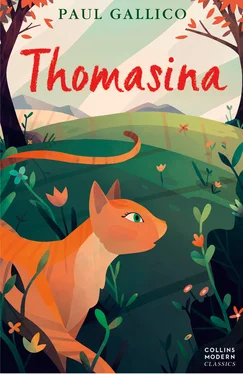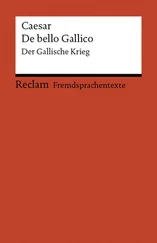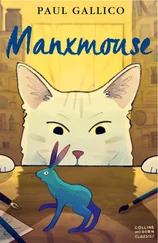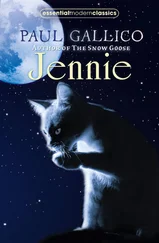Mrs Laggan was a widow, and had been for the past twenty-five years of her seventy-odd. For the last fifteen of them, her dog, Rabbie, had been her only companion, and his bulk draped across the doorstep of Mrs Laggan’s shop was as familiar a figure to natives as well as visitors to the Highland town as that of the fat widow in her Paisley shawl. Since the doorstep was Rabbie’s place, nose between forepaws, eyes rolled upwards, customers of the widow Laggan had learned to step over him when entering and departing. It was said in the High Street that descendants of these clients were already born with this precaution bred into them.
Mr MacDhui looked his patients over and the patients looked back at him with varying degrees of anxiety, hope, deference, or in some cases a return of the hostility that seemed to be written all over the well-marked features of his face, the high brow, the indignantly flaring red-tufted eyebrows, commanding blue eyes, strong nose, full and sometimes mocking lips, half seen through the bristle of red moustache and beard and the truculent and aggressive chin.
His eyes and, above all, his manner always seemed cold and angry, perhaps because, it was said in Inveranoch, he was on the whole a cold and angry man.
A widower of the stature and flamboyance of Mr Veterinary Surgeon MacDhui was subject enough for gossip in a Highland town the size of Inveranoch, in Argyll, where he had been in practice for only a little over eighteen months. By the nature of his profession he was a figure of importance there since he looked after not only the personal and private pets of the townspeople, but was responsible also for the health of the livestock raised in the outlying farms of the district, the herds of Angus cattle and black-faced sheep, pigs and fowl. In addition, he was the appointed veterinary of the district for the inspection of meat and milk and hygienic dairies as well.
The gossips allowed that Andrew MacDhui was an honest, forthright and fair-dealing man, but, and this was the opinion of the strictly religiously inclined, a queer one to be dealing with God’s dumb creatures, since he appeared to have no love for animals, very little for man, and neither the inclination or the time for God. Whether or not he was an out and out unbeliever as many claimed, he certainly never was seen in Mr Peddie’s church, even though the two were known to be good friends. Others claimed that when his wife had died his heart had turned to stone, all but the corner devoted to his love for his seven-year-old child, Mary Ruadh, the one who was never seen without that ill-favoured, queer-marked ginger cat she called Thomasina.
Mind you, said the tattlers, no one denied that he was a good and efficient doctor for the beasties. Quick to cure or kill, and a mite too handy with the chloroform rag was the word that went around. Those who felt kindly towards him held that he was a humane man not disposed to see a hopelessly sick animal suffer needlessly, while those who disliked him and his high-handed ways called him a hard, cruel man to whom the life of an animal was nothing, and who was openly contemptuous of people who were sentimentally attached to their pets.
And many of those who did not encounter him professionally were inclined to the belief that there must be some good in the man else he would not have had the friendship and esteem of Mr Angus Peddie, pastor of the Presbyterian flock of Inveranoch. It was said that the minister who had known MacDhui in their student days had been largely instrumental in persuading his friend, upon the death of his wife, Anne, to purchase the practice of Inveranoch’s retiring vet and move thither leaving behind him the unhappy memories that had bedevilled him in Glasgow.
Several of the inhabitants of Inveranoch remembered Mr MacDhui’s late father, John, himself a Glasgow veterinary, a dour, tyrannical old man with a strong religious bent who, holding the purse strings, had compelled his son to follow in his footsteps. The story was that Andrew MacDhui had wished to study to become a surgeon in his youth but in the end had been compelled for financial reasons to yield to his father’s wishes and likewise become a veterinary.
One of these inhabitants had once paid a visit to the gloomy old house in Dunearn Street in Glasgow where for a time father and son practised together until the old man died, and had nothing good to say about it, except that it was not much to wonder at that Mr MacDhui had turned out as he had.
Mr Peddie had known MacDhui’s father as a psalm-singing old hypocrite in whose home God served merely as an auxiliary policeman. Whatever seemed healthy or fun, old John MacDhui’s God was against, and Andrew MacDhui had grown up hating Him and then denying Him. The tragedy of the loss of his wife, Anne, when his daughter, Mary Ruadh, was only three had confirmed him in his bitterness.
His scrutiny completed, MacDhui now pointed his beard at old, fat Mrs Laggan and jerked his head in the direction of his office. She gave a little bleat of fright, picked Rabbie up out of her lap and arose painfully, holding him in her arms where he lay on his back, forepaws bent limply, watery eyes revolving. He resembled an over-stuffed black and grey porker and he wheezed at every breath like a catarrhal old man snoring.
Mr Angus Peddie pulled in his feet to let her by and gave her a warm, cherubic smile of encouragement, for he was the very opposite of the figure that a dour Scots churchman is supposed to resemble. He was short, inclined to stoutness, sweet-natured and extraordinarily vital. He had a round, dimpled face and mischievous eyes and smile which, however, could instantly express the deepest sympathy, penetrating understanding and concern.
Peddie’s pug dog, who, as well as suffering from chronic indigestion, staggered under the name of Fin-du-Siècle, an indication of the kind of humour one might be expected to encounter in the large Peddie family, lay likewise wheezing in the minister’s lap. Peddie lifted him into a sitting position so that he could better see Mrs Laggan and her sick dog go by. He said: “That’s Mrs Laggan’s Rabbie, Fin. The poor wee thing isn’t feeling well just now.” The rolling eyes of the two dogs met for a moment in melancholy exchange.
Mrs Laggan followed Mr MacDhui into the examining room of the surgery and deposited Rabbie on his back upon the long, white-enamelled examining table where he remained, his forepaws still limp and his breath coming in difficult gasps.
The veterinarian lifted the lip of the animal, glanced at his teeth, pulled down its eyelids and placed one hand for a moment upon its heaving belly. “How old is this dog?” he asked.
Mrs Laggan, traditionally dressed as became a respectable widow, in rusty black with a Paisley shawl over her shoulders, seemed to shrink inside her clothes. “Fifteen years and a bit,” she replied. “Well, fourteen, since he’s grown from the wee pup he was the day I got him,” she added, as though by quickly subtracting a year from his age she might lure fate into permitting him to remain a year longer. Fifteen was old for a dog. With fourteen there was always hope they might live to be fifteen, like Mrs Campbell’s old sheepdog, which was actually nearly sixteen.
The veterinarian nodded, glanced perfunctorily at the dog again and said: “He ought to be put out of his misery. You can see how bad his asthma is. He can hardly breathe.” He picked the dog up and set him on his feet on the floor where he promptly collapsed on to his belly with his chin flat on the floor and his eyes turned up adoringly at Mrs Laggan. “Or walk,” concluded MacDhui.
The widow had many chins. Fear set them all to quivering. “Put him away? Put the poor beastie to death? But whatever should I do then when he’s all I’ve got in this world? We’ve been together for fifteen years now, and me a lonely widow for twenty-five. What would I be doing without Rabbie?”
Читать дальше












